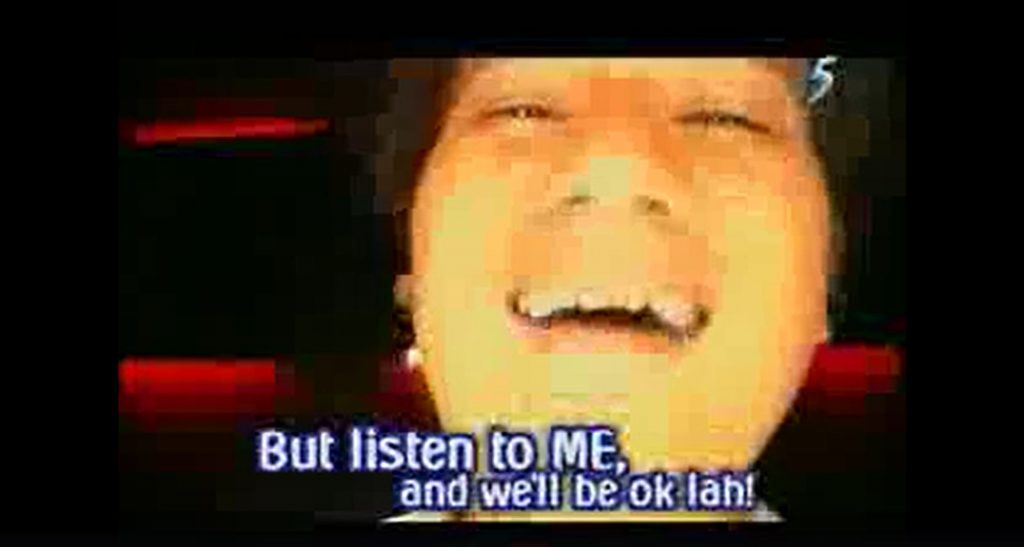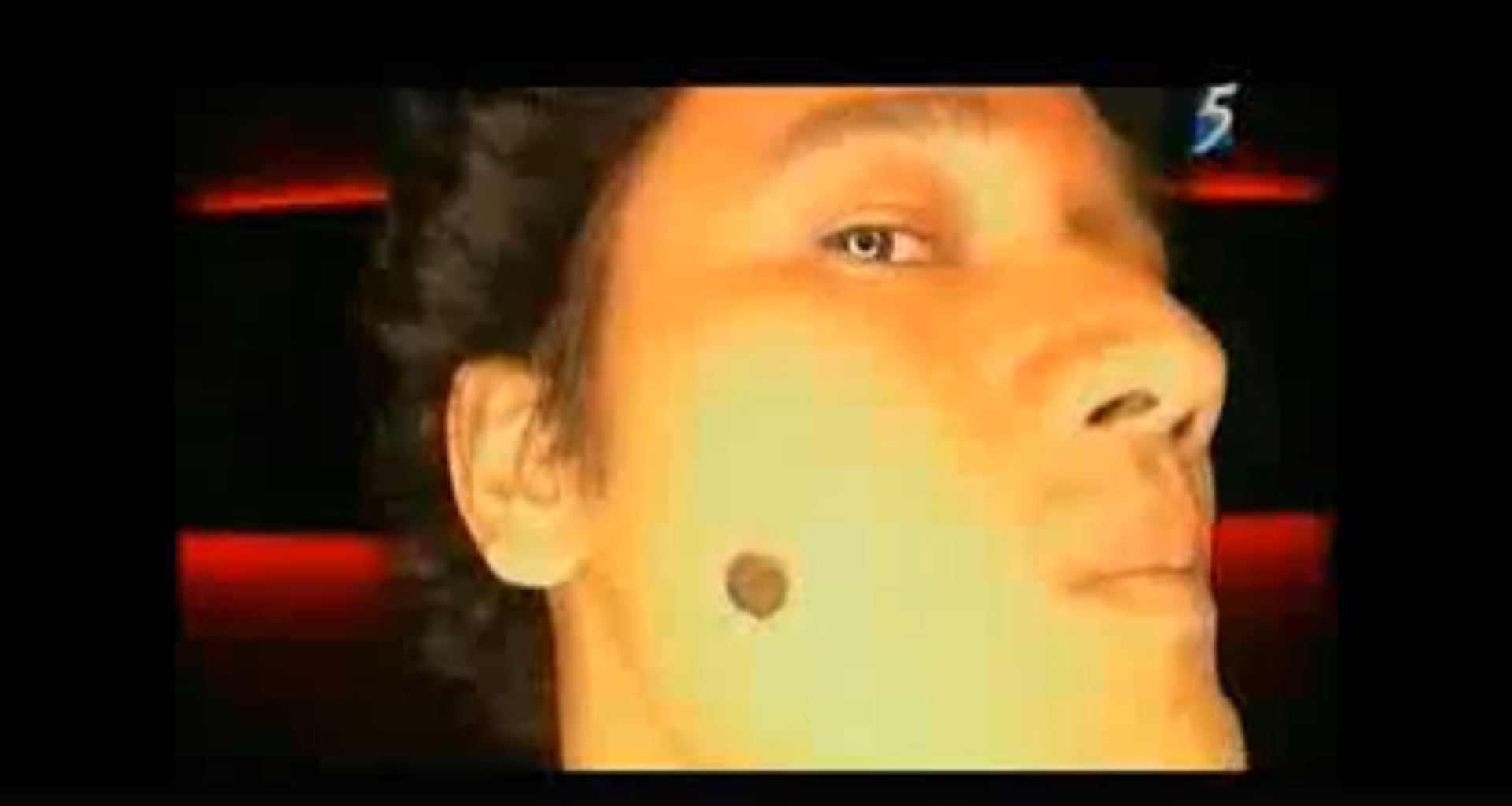Back in 2003/2004, I’d sit on my family couch at night watching whatever it was that Channel 5 was showing. Sometimes it would be local sitcoms, other times it was crappy international films. Yet I wasn’t interested in the programs; instead, every day I patiently waited for the random broadcasts of my favourite advertisement—the Phua Chu Kang Sar-vivor rap.
The first time I saw Gurmit Singh’s afro-wearing contractor and his giant mole pop up unannounced on the TV screen, it blew my tiny mind.
Opening with a shot of PCK in the booth, I thought Mediacorp had accidentally aired a Chinese New Year music video in the middle of the year. Then, almost immediately, an incredibly bouncy pop-rap beat kicked in, sending 7-year-old me into a dancing frenzy. Only years later did I realise the song was actually a parody of the 1997 Will Smith hit single Gettin’ Jiggy Wit It.
Acting as a public service announcement during the height of the SARS epidemic in Singapore, the song was the government’s way of appealing to every single demographic. PCK is a national icon that’s well-loved by all, and backing him up with an also iconic instrumental from the 90s only strengthened its quality as a song.
Though Mediacorp doesn’t make content like Sar-vivor anymore, possibly due to licensing issues, parodies have found a home amongst local content creators. The country’s biggest Youtuber, Jianhao Tan, got his start making song parodies, and the format is still as strong and prevalent as ever among Singapore’s Youtube community.
However, what separates Sar-vivor from amateur content is Gurmit Singh. His performance on the song is exceptional. Fully channelling the Phua Chu Kang persona that people have come to know and love, Gurmit’s charisma provides an infectious energy that masks the corny humour of the song. Even the excessive use of Singlish feels adorable rather than forced and forced, which is a hurdle that many Youtubers fail to overcome.
And of course, the SARS puns in the chorus and the insanely catchy ‘Use Your Brain’ hook was also a stroke of genius. Choosing to draw up new melodies instead of re-using Will Smith’s rap flow helped listeners form their own opinions rather than make comparisons to the original. It allowed the song to stand on its own as a fresh piece of content that Singaporeans could attach themselves to.
In comparison to classic National Day songs like One People, One Nation, One Singapore and Home—songs that aspire to inspire and instil a sense of nationalism—Sar-vivor is noticeably lacking in meaning and depth. It’s the kind of rap/song that might cause those unfamiliar with Singaporean culture to scratch their heads in confusion.
At the same time, it is also this full-blown embracing of Singapore’s peculiarities that makes the song lovable. It’s not glamorous, nor does it aim to be a high-brow piece of art that wants to impress. Instead, it’s a song that has fun with local mannerisms.
Like ShiGGa Shay’s Tapau, a wholly original rap song made for the 3688 OST, its celebration of everyday Singapore life made it a hit. Although it wasn’t as iconic, its subtly funny hook of listing out various coffee shop drinks was endearing enough to gain the attention of Singaporeans. It’s a good song in its own right, but Sar-vivor’s differentiating factor is its ability to appeal to an underlying Singaporean characteristic: over-worrying.
The song owes its longevity largely to its warning-like message, drilling its way into our brains. How many of us still randomly blurt out lines like ‘Some say leh, some say lah/Spread kaya, but don’t spread SARS!’ or ‘Think you got SARS? Call nine-nine-three!/Ambulance will come for free!’ even now?
There are no overly complicated instructions about going for health inspections or consuming specific vitamins. Simplicity is key here, and at some points, PCK’s advice actually borders on being too vague. Still, the lyrical content is straightforward enough to be understood by everyone and, perhaps in an unintended fashion, also led to the song’s resurgence over the years.

Early 2009 to late 2010 saw the rise of H1N1, better known as Swine Flu, which sent the world into a frenzy. Everyone was clamouring for masks and vaccines, when the SARS comparisons began to surface on national news channels and in family conversations. Concurrently, the Sar-vivor rap gained new life as it achieved its first instance of internet fame on Facebook and Youtube.
It might not even be a stretch to call the song Singapore’s first online meme.
Humour has long been used as a coping mechanism, and Sar-vivor was no different. There’s an unmoveable set of rose-tinted glasses when it comes to the track. Reminding us of a time that was once filled paranoia, which was eventually replaced with hope, the song felt like it was telling us that despite all the warnings that were given, things can still turn out alright; that we might one day all look back and laugh about it.
Maybe that’s why the song has made yet another comeback this year against the coronavirus, whose instructions listed in the song align nearly perfectly with the precautions people should be taking.
A great piece of media can command public attention during a moment in time, but truly classic works will be recalled by people regardless of the time period. It’s this memorability that places Sar-vivor in the company of some of the best Singaporean songs in the country’s history.
Thus, with Phua Chu Kang being a timeless icon, and epidemics, unfortunately, with startling regularity, Sar-vivor will forever remain within Singapore’s consciousness regardless of generation. In a society that’s often baited by pessimism, having a piece of lighthearted history to fall back on could be the best port in this storm that we could ask for.
What are your thoughts on Singaporeans hoarding food and supplies? Tell us at community@ricemedia.co.






